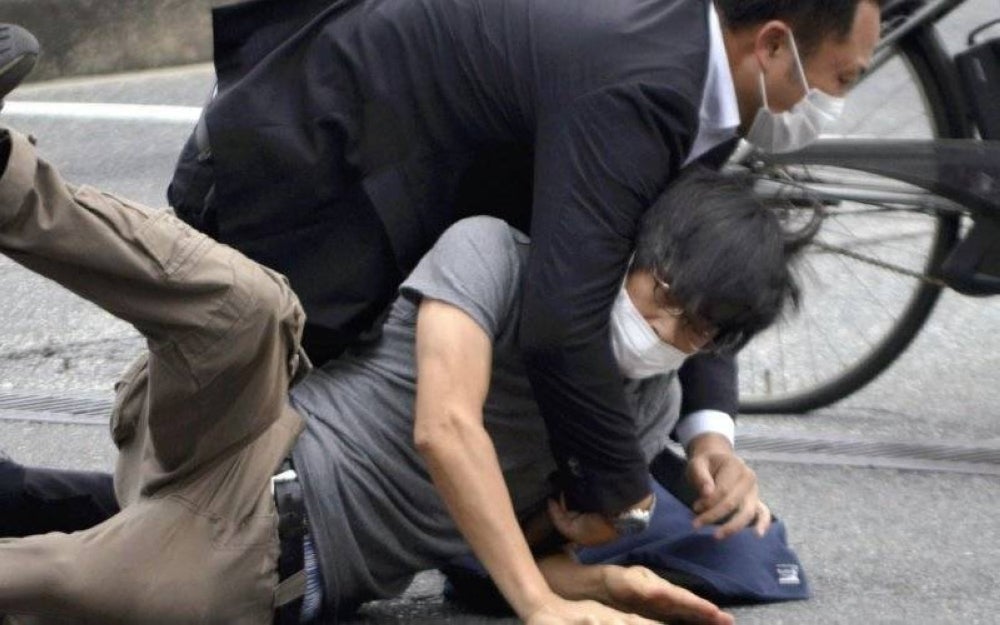Abe murder suspect indicted after psych review

TOKYO, JAPAN - Japanese prosecutors indicted the man accused of killing former prime minister Shinzo Abe on Friday, after a lengthy psychiatric review found him fit to stand trial, local media said.
Tetsuya Yamagami was detained immediately after the former Japanese premier was gunned down last July while giving a campaign speech in the western city of Nara.
The 42-year-old spent months undergoing a psychiatric assessment, which ended earlier this week with his transfer to a police station in Nara.
Yamagami faces charges of murder and violation of gun control laws, according to local media outlets including the Yomiuri newspaper and Kyodo News, and he could face the death penalty if convicted.
Nara District Public Prosecutors Office declined to comment on the case when contacted by AFP.
Yamagami has admitted killing Abe, according to local media, and images taken at the scene show him holding and firing an apparently homemade weapon.
He reportedly targeted Abe over the former premier's ties to the Unification Church.
Yamagami is believed to have resented the church over large donations his mother made to the sect that bankrupted his family.
Abe, who was given a rare state funeral, was not a member of the church but had addressed an affiliated group, as have other well-known speakers such as former US president Donald Trump.
Founded in Korea in 1954 by Sun Myung Moon, the sect -- whose members are sometimes referred to as "Moonies" -- rose to global prominence in the 1970s and 80s.
The church, officially known as the Family Federation for World Peace and Unification, has denied wrongdoing and has pledged to prevent "excessive" donations from members.
Investigations after Abe's death revealed close ties between the church and many conservative ruling lawmakers, including a minister who has resigned.
The revelations angered the public and helped push approval ratings for Prime Minister Fumio Kishida's administration to new lows.
Kishida has ordered a government investigation that could see the Unification Church lose its tax-exempt status in Japan, although it could still continue to operate.
His government has also passed legislation tightening rules around religious donations.
Details that have emerged about Yamagami's childhood, including his mother's alleged neglect of her children to carry out church activities, have built anger against the organisation and spurred sympathy for Yamagami among some members of the Japanese public.
Donations of cash, clothing, food and books flooded into the Osaka detention centre where he was held during his psychiatric evaluation.
Some 15,000 people also signed a petition calling for prosecutors to go easy on him, according to local media. - AFP










